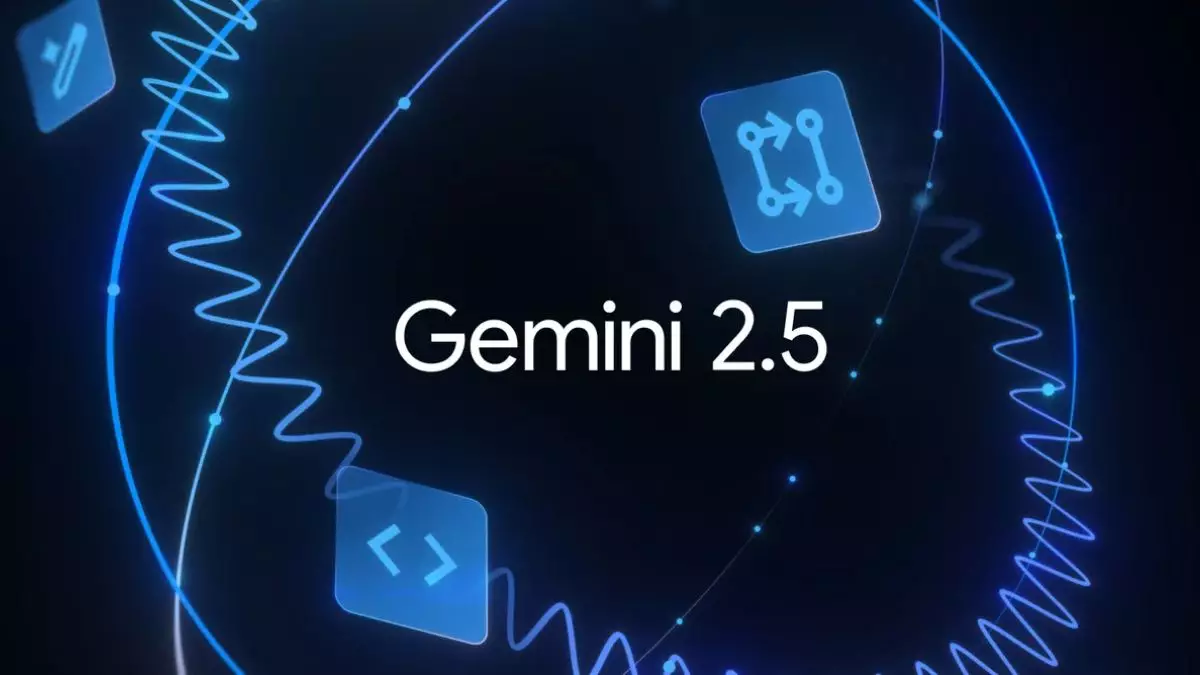On Tuesday, Google took a bold leap into the future of artificial intelligence by announcing the general availability of its Gemini 2.5 family of AI models. The rollout includes the much-anticipated Gemini 2.5 Pro and Flash models, which promise to offer users advanced capabilities that were previously only accessible during a limited preview period. What Google has presented here is not merely an upgrade; it’s a clarion call that highlights both the potential and the pitfalls of AI in our rapidly evolving technological landscape.
The move is invigorating. Google, a stalwart in the tech industry, has opted to elevate the accessibility of AI by allowing users on the free tier to access the Gemini 2.5 Pro model. This democratization of advanced technology breathes life into the notion of AI serving a wider array of users, beyond corporate giants and affluent individuals. In principle, this is spectacular; however, one must pause and consider the implications of such a significant rollout.
Promises of Power: Exploration versus Exploitation
With the introduction of the Gemini 2.5 family, Google has simultaneously given voice to aspirations and created an avenue for potential misuses. The newly launched Flash-Lite model has been branded as Google’s fastest and most cost-effective AI model yet. While on the surface this claim holds promise, one cannot ignore the ethical dilemmas that come with it. Can we truly harness AI for good in an environment that is becoming increasingly polarized?
The question of accessibility also looms large. Free users may face a cap on daily prompts compared to their Pro counterparts. This creates an elitist tier within the very framework that aims to promote equal opportunity in AI usage. The feature disparity reflects a troubling paradigm: is it genuinely possible for Google to cater to a diverse user base while simultaneously prioritizing monetization? As it stands, the power dynamics within AI may replicate many of the injustices present within our societal structure.
The Technical Triumphs: A Double-Edged Sword
The technical advancements of these models are indeed impressive. With enhanced performance capabilities in coding, mathematics, and reasoning, the Gemini 2.5 family aims to revolutionize fields including science and multimodal tasks. Yet, the company must tread warily. The reliance on AI models that are touted for near real-time capabilities opens a Pandora’s box of ethical queries regarding misuse, discrimination, and data privacy.
Supplying features such as Google Search integration and code execution tools undoubtedly enhances user experience. Nevertheless, it raises significant concerns about how data is collected and utilized. Google’s assertion that the Personalisation Preview model accesses a user’s search history to better answer queries may seem innovative, but it feeds directly into ongoing debates around privacy and consumer data protection. Does the convenience of personalization justify the erosion of privacy? Users must think critically about the information they surrender for these ostensibly benign enhancements.
The Future Landscape: Navigating the Unknown
Adoption of AI is no longer a question of ‘if’ but ‘when.’ Google’s proactive stance signifies a monumental shift in the technology landscape, propelling AI into the mainstream. However, the soaring excitement surrounding these new tools should be tempered by a sober assessment of the larger societal context. Questions about equity, privacy, and ethical AI usage are paramount and cannot be sidelined amidst the buzz of new capabilities.
As policymakers and technologists grapple with these issues, the industry finds itself at a crossroads. The Gemini 2.5 rollout is illustrative of remarkable potential, yet it reveals insecurities that could have far-reaching implications. Striking a balance between innovation and ethical responsibility will be crucial in shaping a future where AI benefits all rather than a select few.
In an era increasingly reliant on AI technologies, it’s imperative that we don’t lose sight of core human values, ensuring that progress doesn’t come at the cost of our liberties and ethical standards. The dialogue surrounding the Gemini 2.5 family is just beginning; we must engage critically and thoughtfully as we navigate the uncharted waters of AI. As Google’s offerings evolve, so too must our understanding and considerations of what these advancements truly mean for society at large.


Leave a Reply